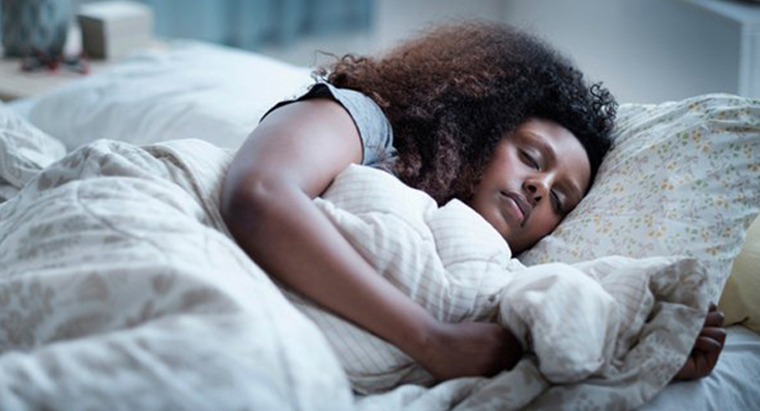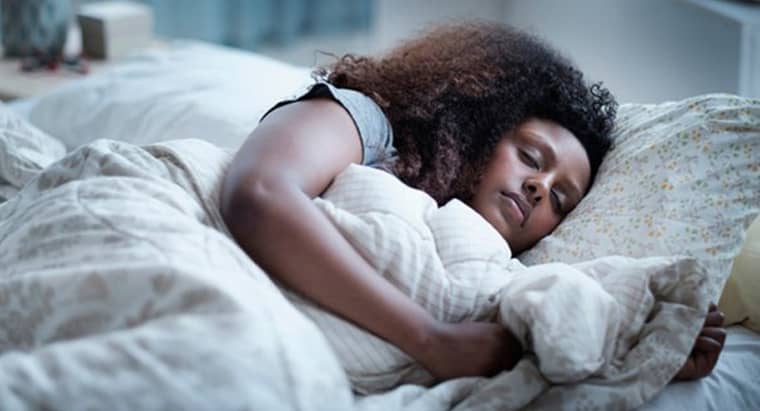Sleep Paralysis is not caused by a demon contrary to popular belief

The notion of being bedeviled by demons, evil spirits, and extraterrestrial beings, has been the myth surrounding sleep paralysis. The feeling of being paralyzed and suffocated, though scary, is a result of the medical condition called Sleep paralysis. This condition is caused by a disturbed rapid eye movement cycle (REM) and it occurs as people fall asleep or come out of sleep.
Causes of Sleep Paralysis
Sleep paralysis can be caused by a variety of factors, including disruptions to the sleep cycle, sleep disorders, genetics, and mental health conditions. Below are some of them:
- Disruptions to the sleep cycle, such as irregular sleep patterns, jet lag, or shift work
- Narcolepsy or other sleep disorders
- Genetics or family history of sleep paralysis
- Mental health conditions like anxiety or depression
- Substance use, including alcohol, drugs, or certain medications
- Sleeping on your back or in a supine position
- Stressful life events or trauma
- Poor overall sleep hygiene or inadequate sleep
Some myths and facts surrounding this Sleep disorder:
| Myths | Facts |
|---|---|
| This is a Paranormal activity caused by evil spirit or paralysis demon. | It occurs when the body goes into REM (Rapid Eye Movement) and encounters trouble while making the transition from being asleep, to being awake. |
| The hallucinations experienced is due to unknown forces. | During sleep paralysis, the person wakes up before their REM cycle is completed. This causes the individual to hallucinate while being unable to move. |
| You cannot do anything about the experience. | focus all your energy on wiggling a toe, finger or muscle. Such a tiny movement can help break the paralysis. Also, endeavor to remain calm. |
| This is a strange condition with no cause. | While the condition is not fully understood, several factors have been identified as probable causes: stress, narcolepsy (sleep disorder), jet lag, shift work and lack of sleep. |
| The experience may kill you. | It does not cause any physical harm to the body, and there have been no published deaths as a result of sleep paralysis. |
| It affects target individuals. | Can happen to anyone. |
| It could be a warning that evil spirits are out to get you. | It is a sign that your body is not moving through the sleep stages smoothly. |
| An incident can last for long hours. | Typically, sleep paralysis last for about a few seconds to minutes. |
According to WebMD,
“There is no need to fear night-time demons or alien abductors. If you have occasional sleep paralysis, you can take steps at home to control this disorder. Start by making sure you get enough sleep. Do what you can to relieve stress in your life; especially not just at bedtime. Try new sleeping positions if you sleep on your back. And be sure to see your doctor if sleep paralysis routinely prevents you from getting a good night’s sleep.”
Be rest reassured that this condition is generally not severe. To prevent it, avoid alcohol, nicotine, and drugs a few hours before bed. Follow a consistent sleeping schedule that enables you to get adequate sleep each night also, desist from sleeping on your back.
Commonly associated symptoms
- Inability to move or speak, often accompanied by a feeling of being “frozen”
- Intense fear or anxiety, often accompanied by hallucinations or a sense of a presence in the room
- Sensations of pressure or weight on the chest or body
- Rapid heart rate, sweating, or breathing difficulties
- A sense of being disconnected from the body or reality
- Sleep disturbances or disrupted sleep patterns
- Fatigue, sleepiness, or difficulty functioning during the day
Please note that not all individuals with sleep paralysis will experience all of these symptoms and that symptoms may vary in severity and duration.
Do you require specialist care for this condition? Visit us for Sleep disorder treatment.
Treatment for Sleep Paralysis
To treat this condition, here a couple of tips that can help:
- Establish and maintain a regular sleep schedule, aiming for 7-9 hours of sleep per night
- Create a comfortable sleep environment, with a supportive mattress, comfortable pillows, and a cool, dark, and quiet room
- Avoid sleep disruptions, such as caffeine, alcohol, and nicotine, particularly close to bedtime
- Reduce stress and anxiety through relaxation techniques such as meditation, deep breathing, or yoga
- Engage in regular exercise, but avoid vigorous exercise close to bedtime
- Avoid sleeping on your back or in a supine position, instead opting for side or stomach sleeping
- Treat underlying sleep disorders, such as sleep apnea or narcolepsy, as directed by a healthcare professional
- Seek treatment for any underlying mental health conditions, such as anxiety or depression, as directed by a healthcare professional
Further Reading:
Daily Times: Addressing the myths of Sleep Paralysis
Reference:
Blahd, W. (2016, October 16). Sleep Paralysis. Web MD. Retrieved September 26, 2017



 Translate
Translate

